The farm behind your food: An inside look at a New Jersey turkey farm
Turkeys live happy and happy lives at Lee Turkey Farm in East Windsor, says owner Ronny Lee.
And then they have one bad day.
Since Lee was in third grade, he’s raised and processed 54,000 turkeys for Thanksgiving tables at the nation’s oldest continuously running processing plant at his family farm. Lee's great-great-great-grandfather purchased it in 1868 — and about 80 years ago, the farm began concentrating on turkeys.
For days now, Lee has been readying his 3,000-bird flock for what amounts to the farm's Super Bowl. It takes a lot of work, as he sometimes is out from 4:30 a.m. to 11 p.m. without lunch breaks.
“You eat a lot of Hershey bars,” he said.
On Monday, Nov. 20, and Tuesday, Nov. 21, people will line up to pick up turkeys, ranging from 13 to 30 pounds. One hundred turkeys are sold every hour and the line can stretch to the street.
Customers can visit the farm anytime between 9 a.m. and 7 p.m. on those days to purchase fresh turkeys for $4.69 per pound, or frozen turkeys for $4.29 per pound, all on a first-come, first-serve basis.
“I’ve never had to send anyone home without a turkey,” Lee said.
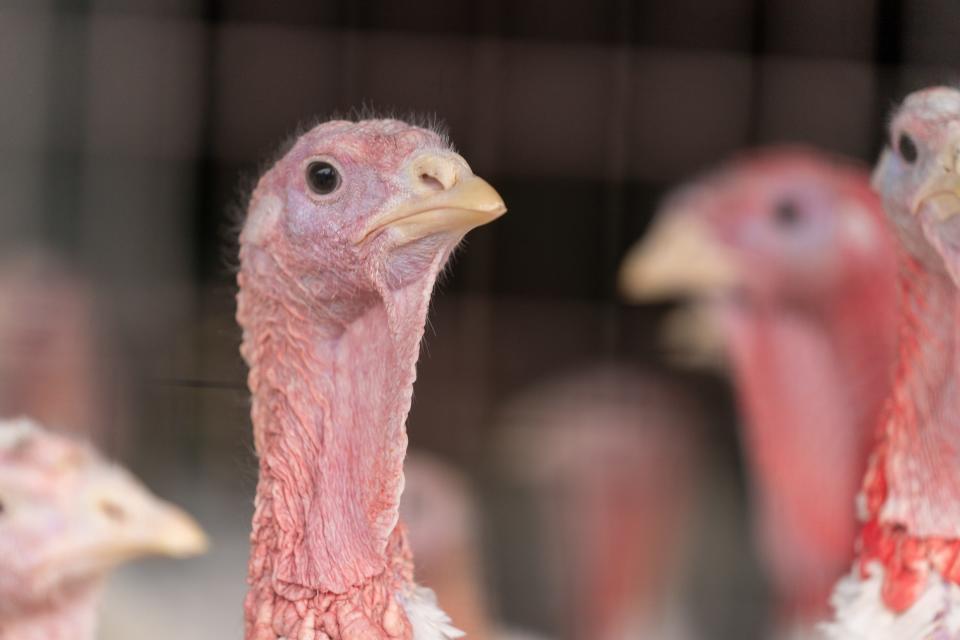
Openings and closings: We welcomed, and bid goodbye, to these Central Jersey restaurants this year
Despite their morbid end, the turkeys’ 11- to 21-week lives are happy and healthy, Lee said.
After hatching and growing to a month old, turkeys live in a 10,000-square-foot open-faced barns with constant natural light and air circulation, Lee said.
“Turkeys aren’t like people,” Lee said. “They don’t need space, privacy or vacations. They just like to eat, drink and hang out with their friends.”
Lee’s turkeys live for 11 to 21 weeks, eating a homemade feed mix with a corn and soybean base.
“Their flavor depends a lot of what they eat,” Lee said. “There is all this talk about grass feed, but with corn feed, you get a nice, moist and juicy bird. The flavor is incredible."
Lee can tell that his turkeys, which are raised without antibiotics or hormones, are happy because they’re not missing feathers. When turkeys are upset, they pick at each other.
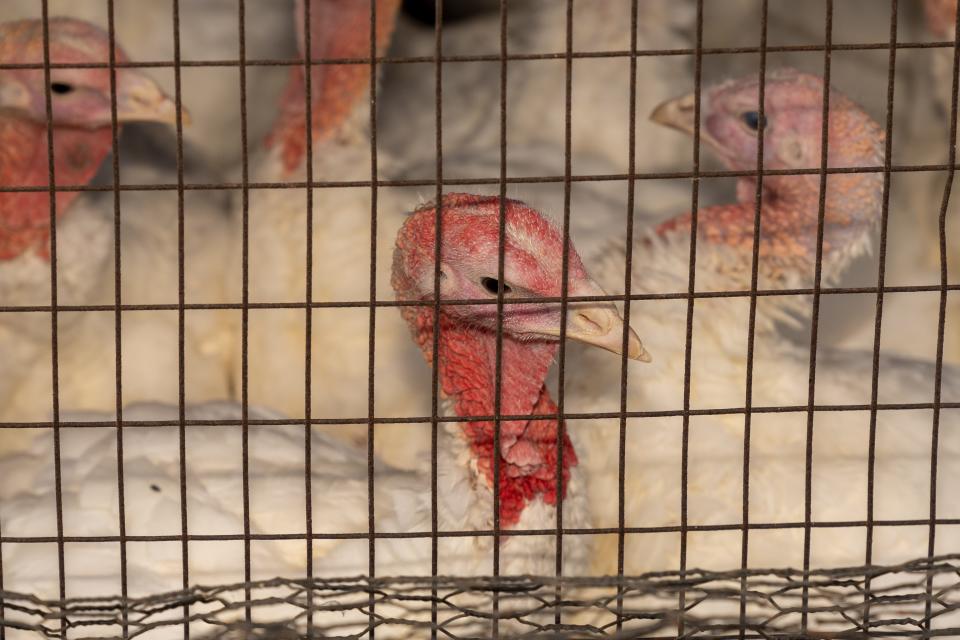
More: 15 New Jersey farms that sell fresh Thanksgiving turkeys
The bad day
Here's how the turkeys go from the farm to your table:
To "process" the birds, their throats are cut while leaving the heads on, which stops them from flailing and hurting themselves.
“They die very peacefully in only about 30 seconds, before they even realize what happened to them,” Lee said.
Then, they are put in a scalder at 140 degrees for 45 seconds, which loosens their feathers. Another machine helps remove nearly all their feathers in another 45 seconds. It takes only 14 minutes to process 60 turkeys, Lee said.
Don't want to cook? These Central Jersey restaurants are serving Thanksgiving dinner
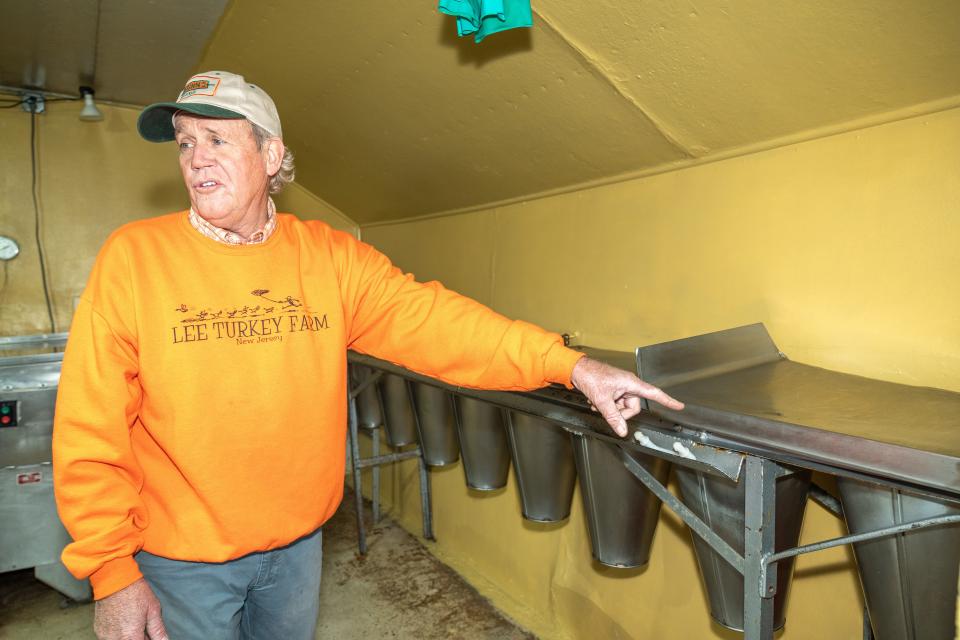
Finally, Lee and his team hand-pluck out the few remaining feathers before the turkeys are cleaned and eviscerated.
Lee isn’t crying into his gravy bowl on "processing day."
“Turkeys aren’t soft and cuddly,” he said. “They’re actually mean.”
If turkeys see an injured turkey, they will want to gang up and attack it. If a turkey is injured, Lee gets it out of the area right away into a separate space he calls his “turkey hospital."
"I have no sympathy on processing day, but I treat them really nicely until then,” Lee said.
Historic eats: Dating back nearly 300 years, these are the oldest restaurants in Central Jersey
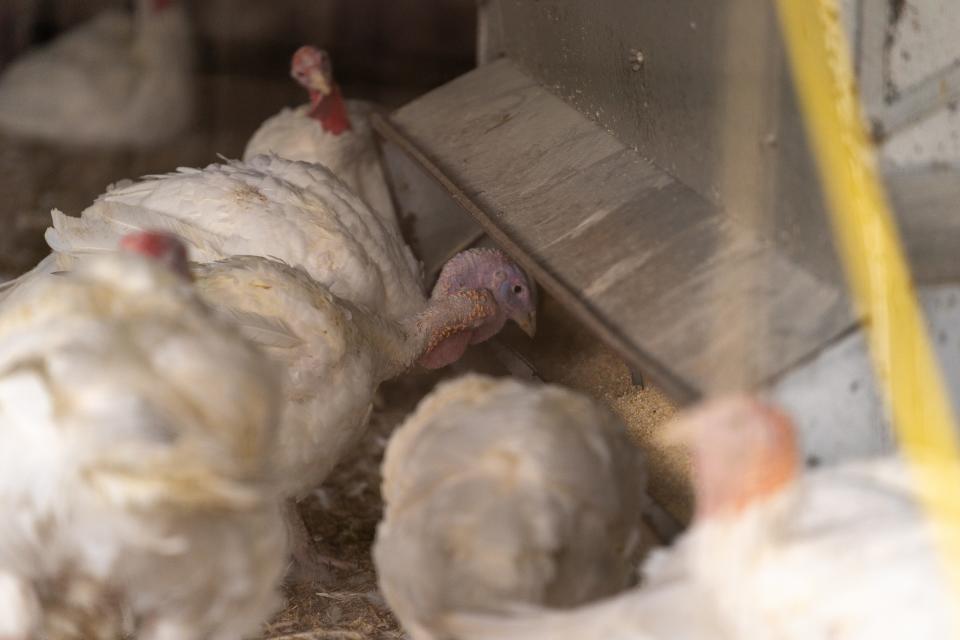
Aging or freezing the meat
After the turkeys are processed, they are put into a fridge for at least two days, which ages the meat and keeps it tender and its texture ideal, Lee said.
“Today’s modern growers don’t age the meat properly,” Lee said. “This idea of killing it and eating it the same day? No. You need to wait at least two days for the best quality.”
Then the turkeys are flash-frozen, which means they’re frozen quickly at -10 degrees, preserving the meat and its juicy qualities.
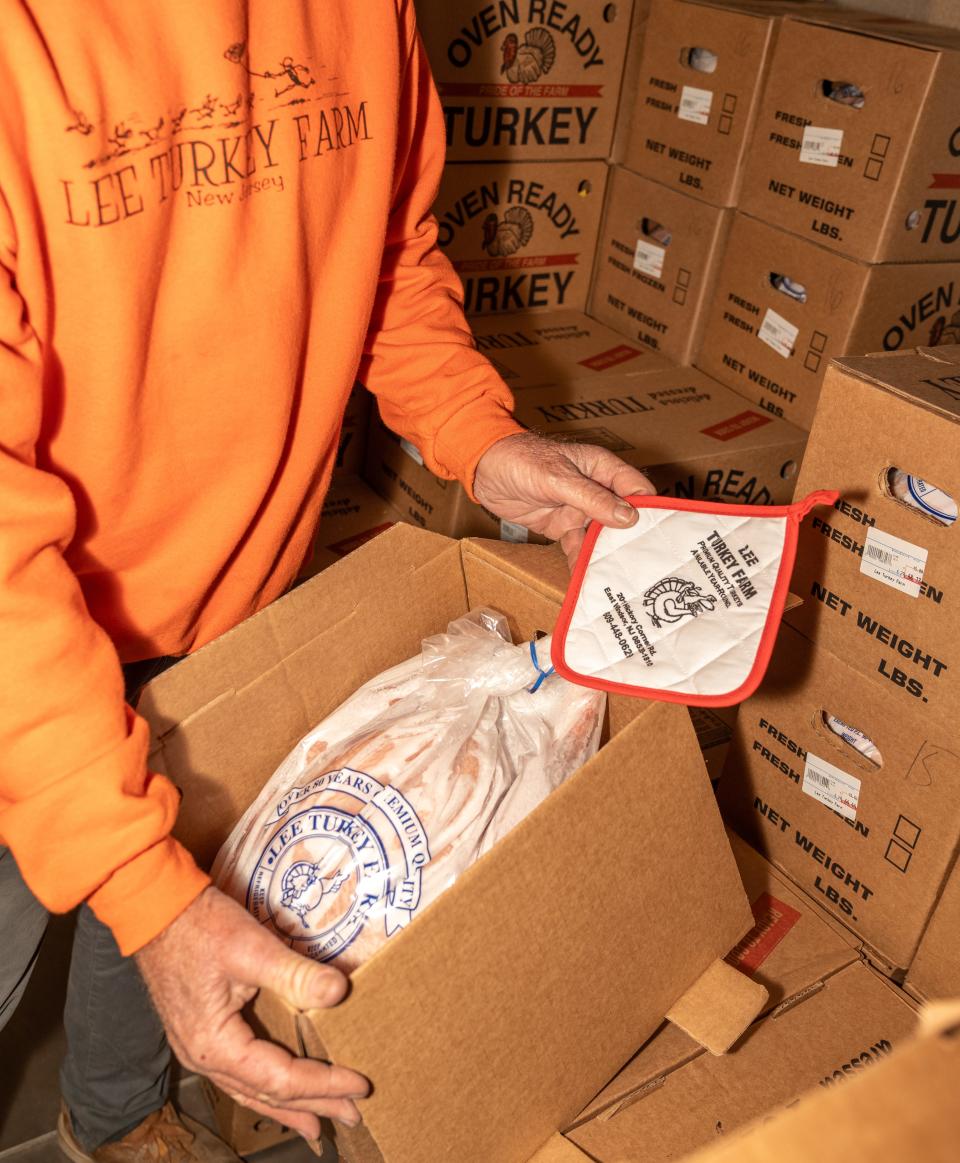
“If you’re not going to eat it fresh and you need to freeze it, freezing does not hurt anything if it’s done right,” Lee said.
His frozen turkeys taste exactly like his fresh turkeys, Lee said. The only reason the frozen turkeys are cheaper, he added, is because he’s under less pressure to have them ready by a certain date.
Lee sells white turkeys, not heritage turkeys.
“They’re heritage for a reason — they came out with better varieties and left them in the dust,” Lee said. “It’s like a Model T. Everyone wishes they could go back to the Model T until you get in it and you find it has no power steering, heat, air conditioning or suspension. Turkeys are the same way. They’ve improved them over the years.”
Turkey cooking tips from the owner of Lee Turkey Farm
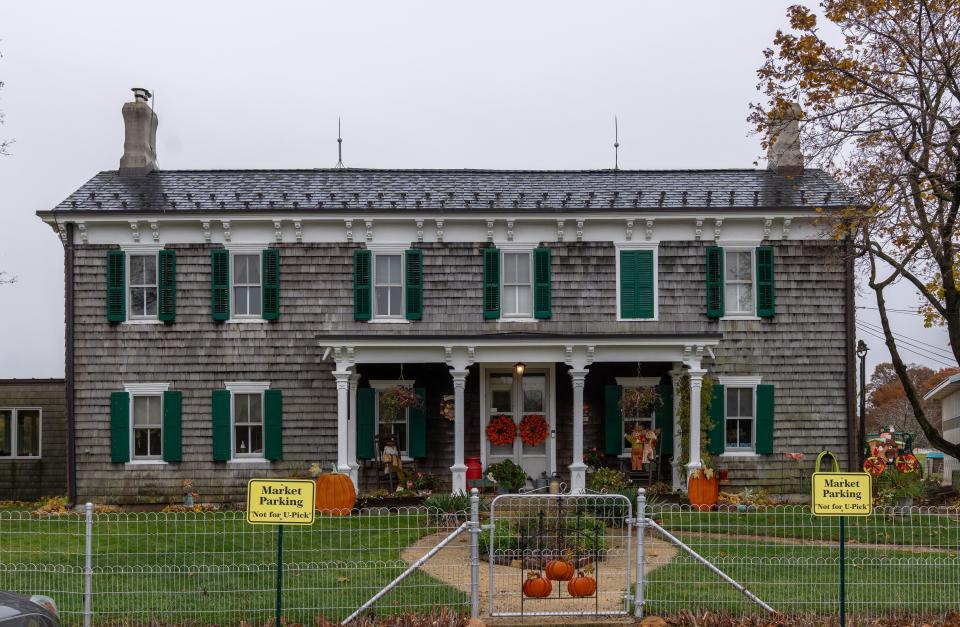
Forget the brining. According to Lee, brining a good-quality turkey in salt water is unncessary. Brining was historically done to preserve meat when fridges were not an option. "Some people like to brine and add all kinds of flavors – have at it. But I think if you have a good-tasting turkey you don’t need to do that. Maybe a little bit of salt, pepper and butter, but nothing more than that," he said.
Turn up the heat. Instead of cooking a large turkey that weights more than 28 pounds for endless hours, Lee said that diners should wrap their turkey in foil and cook it at a higher temperature for half the time. "You’re going to have to let the crisp skin go, but you will have a beautiful bird that’s done in a reasonable amount of time and it will be juicy and fantastic," he said.
Don't bother deep-frying it, either. Deep-frying a turkey seals in its juiciness, but if your turkey is already dry, there won't be much to seal in with a deep fryer. "When you have a turkey that’s been fed and grown properly," Lee said, "it doesn’t make a difference to deep-fry it — not enough that I would buy all of that peanut oil and do it again."
Go: Lee Turkey Farm, 201 Hickory Corner Road, East Windsor; 609-448-0629, leeturkeyfarm.com. Visit from 9 a.m. to 7 p.m. on Monday, Nov. 20, or Tuesday, Nov. 21, on a first-come, first-serve basis to get your 13- to 30-pound fresh or frozen turkey.

Contact: JIntersimone@MyCentralJersey.com
Jenna Intersimone has been a staff member at the USA TODAY NETWORK New Jersey since 2014, after becoming a blogger-turned-reporter following the creation of her award-winning travel blog. To get unlimited access to her stories about food, drink and fun, please subscribe or activate your digital account today. You can also follow her on Instagram at @seejennaeat and on Twitter at @JIntersimone.
This article originally appeared on MyCentralJersey.com: Thanksgiving NJ: A look inside Lee Turkey Farm in East Windsor

